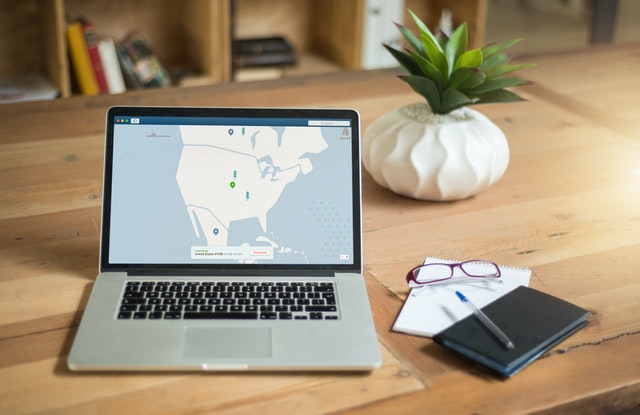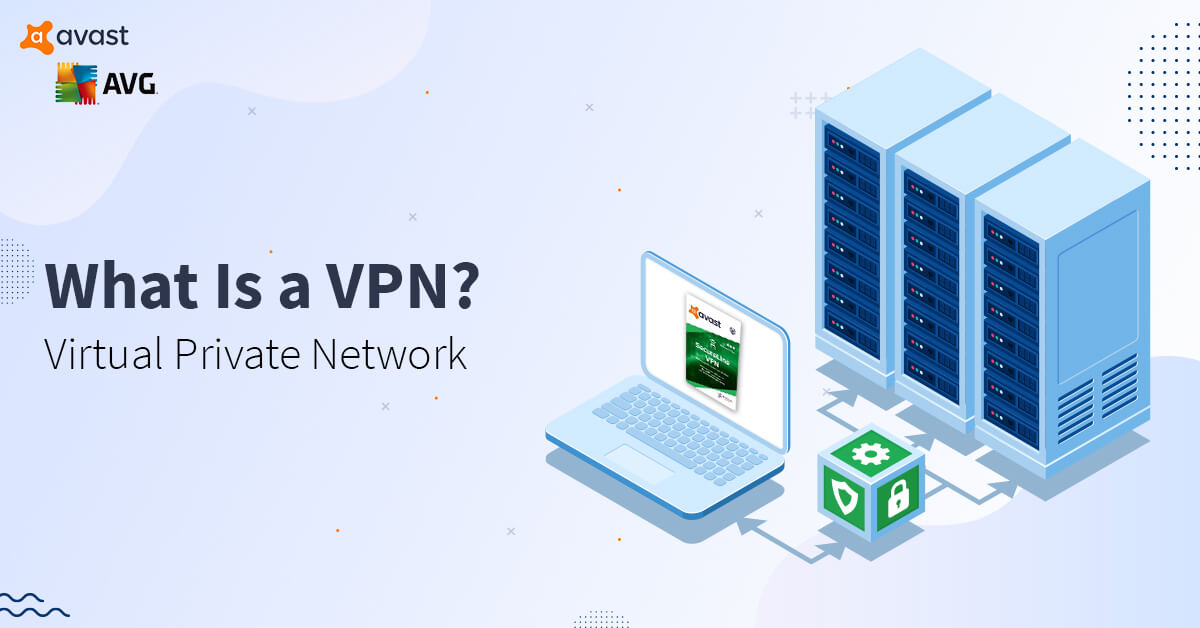The 21st century is often called the Dotcom era due to commercial internet becoming widely available, completely changing the way we viewed and lived life previously.
This century also simultaneously saw the rise of matters related to privacy and data protection. Major scandals like the one surrounding WikiLeaks caused a wide-scale awareness among consumers about the risks of using the internet.
This has led to governments and consumers pushing for better laws as well as security measures to prevent data theft and maintain privacy. One such measure adopted worldwide for more secure and anonymous surfing of the internet is a technology known as a ‘VPN.’
What Is a VPN?

VPN stands for “virtual private network” – a service that protects your internet connection and privacy online.
A VPN securely connects your device to the internet through a tunnel that encrypts your connection. The purpose of virtual private networking is to help you surf the internet while keeping your IP address and identity anonymous even when using public WIFI hotspots.
How Does a VPN Work?
A VPN is a novel technology that helps you surf the internet anonymously through a network that hides your original location. The VPN technology can be looked at as a mask of anonymization, allowing the user to conceal their internet identities and roam through the interwebs freely without being bogged down by security and privacy issues.
So, how does a VPN work? Let’s look at an analogy to understand this better:
The internet can be understood as a large connection of computers which form a ‘web’ similar to different roads on a large expressway. When you browse the internet, it is similar to riding on these roads to reach from one place to another.
Now, anyone can monitor all your activity through various means and can exploit said information. That’s what a VPN is for – it acts like a tunnel that takes you to your destination via a secure system of tunnels. More importantly, it does this while keeping your location and IP address anonymous.
The biggest reason why a VPN is used is that it employs multiple servers worldwide to mask your address. You can access the internet through these servers and show your VPN address at different locations around the world.
This is how a VPN successfully throws off any chance of finding your true location. Now that you’re aware of what a VPN is, let’s see why you need to use one.
Uses of VPN: What Is the Purpose of Virtual Private Networking (VPN)?
Surfing the internet has become easier, yet much more problematic. With millions of bytes of data being shared and stored without consent, it’s tough to know where your data may end up. This is where the use of VPN technology falls in. By tunneling your network through an encrypted channel with servers all across the globe, the risk is largely averted.
VPNs can be used for many reasons, even though their functioning remains moderately similar. It can be used for purposes such as-
1) Stream From Anywhere
Certain services are limited or not available in many countries and places like that of Netflix and Hulu. In such cases, when you make use of a VPN, you can stream the internet and avail the services available in any country.
Since the VPN connects to a local server in a specific country, the service provider is tricked into believing that the device is streaming from that location. This way, you can stream from anywhere possible – as long as you have an internet connection and a VPN service.
2) Access to Blocked Sites
As explained previously, VPNs act as masks which project to any person tracking your usage. A VPN address makes it seem that you’re accessing the internet from a different corner of the earth.
Similarly, in the case of blocked sites, government ministries mostly censor countries on the basis of internets IPs. This is why a VPN is used: you can circumvent the censorship and access blocked sites by masking your IP.
3) Avoiding Censorship
Just like in the case of blocked websites, government authorities often look to censor certain exchanges of information online. This again brings us to the purpose of virtual private networking, which is disguising your IP.
As such, you can safely exchange and post information without the censorship of your domestic government and without being tracked down.
4) Beating Price Discrimination
Since customers usually use the internet to compare prices, it can often lead to a price war amongst service providers.
The system of price discrimination has given the power back to the providers. These companies charge customers different prices based on their browser history and user data, such as their location.
You can beat by the system by using a VPN and change your browser information and location completely.
5) Don’t Be Tracked
One of the original reasons why VPNs were used was so that people could surf the internet anonymously while leaving behind a minimum digital footprint.
VPN addresses make tracking your internet activity next to impossible as your connection is put through an encrypted tunnel, completely blocking out your original IP.
6) Protect Your Privacy
The government, your internet service provider, and your device manufacturer are consistently tracking your behavior and storing your data. In fact, the concerns surrounding internet privacy generally bring up more questions about what a VPN is.
These threats to data privacy can majorly be circumvented by using a VPN and making it difficult to track your actions. Not only does a VPN hide your data, but it also encrypts your network. Thus, the eavesdropper will be completely lost, and the data collected will be incoherent.
If you’re looking for a VPN that can encrypt your data and keep it protected at all times, check out HMA VPN today.
Types of VPN
They are two types of VPN, namely, remote access VPN and site-to-site VPN.
1) Remote Access VPN
Remote access VPN sets up a secure connection to a private network. This system allows users to access the available resources as though they were working from that network locally.
A remote access VPN system is useful for homes and businesses both. Home users can use these to bypass regional restrictions and surf the internet securely. For business owners, making use of this VPN allows off-site employees to access a private network of the business while being away.
2) Site-to-Site VPN
Site-to-site VPN is also known as a router-to-router VPN. These are usually only used by big organizations such as offices with buildings in different locations. Companies can use this system to connect their networks in a safe and secure manner.
Types of VPN Protocols
A VPN protocol determines how data is routed through a connection. The categories of VPN protocols in it are vast, but some of them are:
- Internet Protocol Security (IPSec)
- Layer 2 Tunneling Protocol (L2TP)
- Point–to–Point Tunneling Protocol (PPTP)
- OpenVPN
- Secure Shell (SSH)
- Remote Access VPN
1) Internet Protocol Security (IPSec)
Internet Protocol Security, also known as IPSec, is used to secure Internet communication across an IP network.
IPSec cures a data connection by verifying the session and encrypting data – such that the whole network and data being exchanged is secure and difficult to trace. The primary focus of this protocol is securing the network through masking and encryption.
2) Layer 2 Tunneling Protocol (L2TP)
L2TP is a tunneling protocol often used in conjunction with IPSec protocols to create a more secure network. L2TP connections connect with each other to form an L2TP tunnel, through which data flows. IPSec can encrypt the data, thereby allowing the network to function through it.
3) Point–to–Point Tunneling Protocol (PPTP)
PPTP protocol is used to create tunnels and confine data flowing through that network. The PPTP protocol encrypts the data packets going through the tunnel and makes it a closed and secure connection. The PPTP is one of the oldest used VPN protocols and can be used on Linux and Mac as well.
4) OpenVPN
OpenVPN is an open-source VPN available to all and typically used by developers. It is usually used to make a secure point-to-point or site-to-site connection.
OpenVPN is not as sophisticated as other VPN protocols in matters of security or speed. Rather, it is a more traditional VPN based on SSL (Secure Sockets Layer) and TLS (Transport Layer Security) protocol.
5) Secure Shell (SSH)
SSH or Secure Shell, as the name suggests, is used to create a secure and encrypted communication tunnel through which the data flows.
SSH is hosted by an SSH client. The data is transferred to the client via a local port, which is then sent via a secure network.
6) Remote Access VPN
Remote access VPN allows people to access locally stored data or data available only to a specific network IP, even without being present locally.
This type of VPN protection is usually used by businesses to allow off-site employees to access databases on a private network.
Conclusion
In this day and age, the right to privacy and data protection have become center stage in matters of technology and law. As such, VPN protection has become a legal ally of many looking to take privacy and security into their own hands.
The internet has become a rather unsafe place, with services like banking and storage of personal data moving online. Everyone should look at VPNs as their first line of defense against government snooping and other cybercrime activities.
Though choosing the right VPN service is complicated, it is an important step in protecting one’s identity and privacy as everything shifts to the virtual space.
Virtual Private Network FAQs
How do you get a VPN?
VPNs come in both free and paid software/online service packages. Depending on your precise needs, your decision will vary.
Though both work, paid software tends to have many benefits over free online services. Free VPN services have a data limit; they come with bloatware, don’t work on all devices, and make your internet slow.
Moreover, free VPNs tend to defeat the purpose of virtual private networking and are generally not nearly as secure as paid services from one of the top VPN service providers.
Thus, if security and stability is your objective, subscribing to a paid VPN software is better.
Is a VPN safe for online banking?
Yes, VPNs are safe, especially for online banking. Most online banking frauds and cyber crimes happen due to banking over an unsecured network. Here, prying eyes can collect your data and access your account.
When you’re using a VPN, all your data is encrypted, and your IP is disguised. Not only does this make you untraceable, but anyone snooping will be unable to access said encrypted data. Thus, VPNs make online banking safer.
Can you be tracked if you use a VPN?
It is generally accepted that a VPN address makes you untraceable, but there are many factors worth considering.
Usually, good VPN services will make you untraceable to hackers and government overwatch. However, your service provider may know that you’re using a VPN. Thus, the level of security and traceability depends on the VPN service provider and your hardware.
Should I use the VPN all the time?
This would solely depend on your usage and purpose. If you want to remain secure and untraceable all the time, such as when you’re accessing a public WIFI hotspot for long durations, it’s a good idea.
However, it is always recommended to change the servers or countries of the VPN periodically. This deters any patterns from forming and leading back to your local IP.
But, in case whatever you want to access is available only over your local IP and not the VPN, it’s perhaps better to switch it off. Also, if you prioritize speed and saving data over security like when downloading heavy files, it’s preferable to switch off your VPN.

